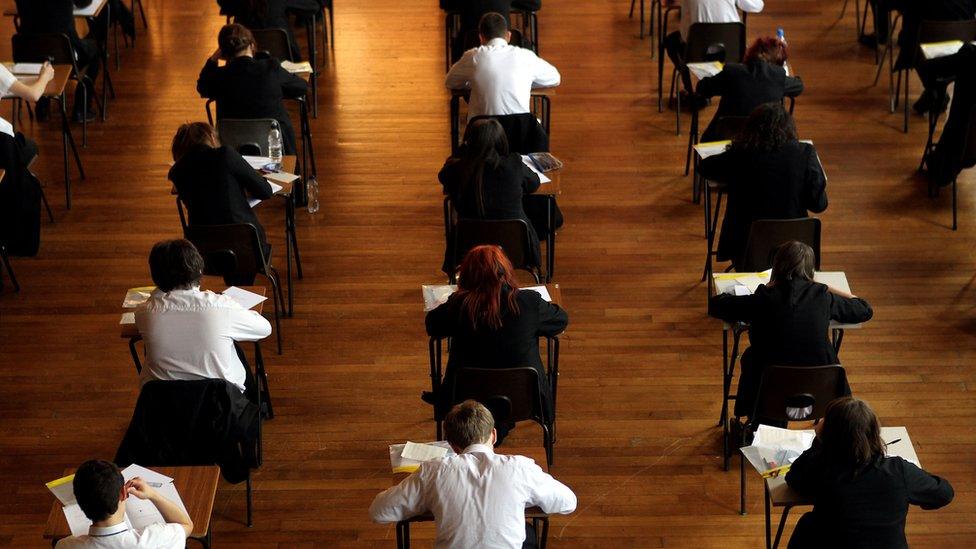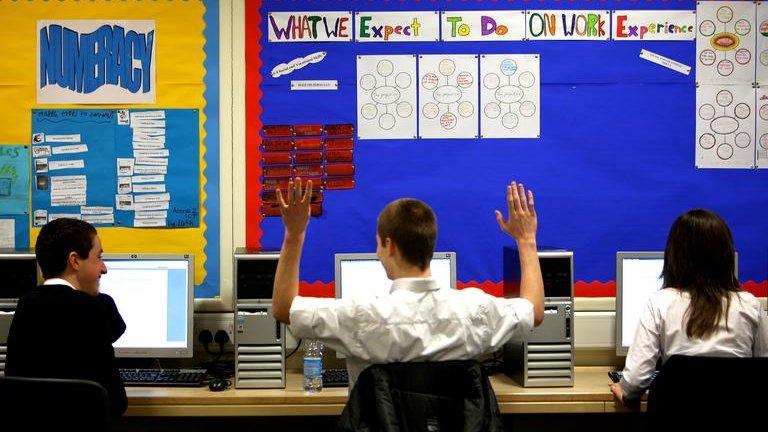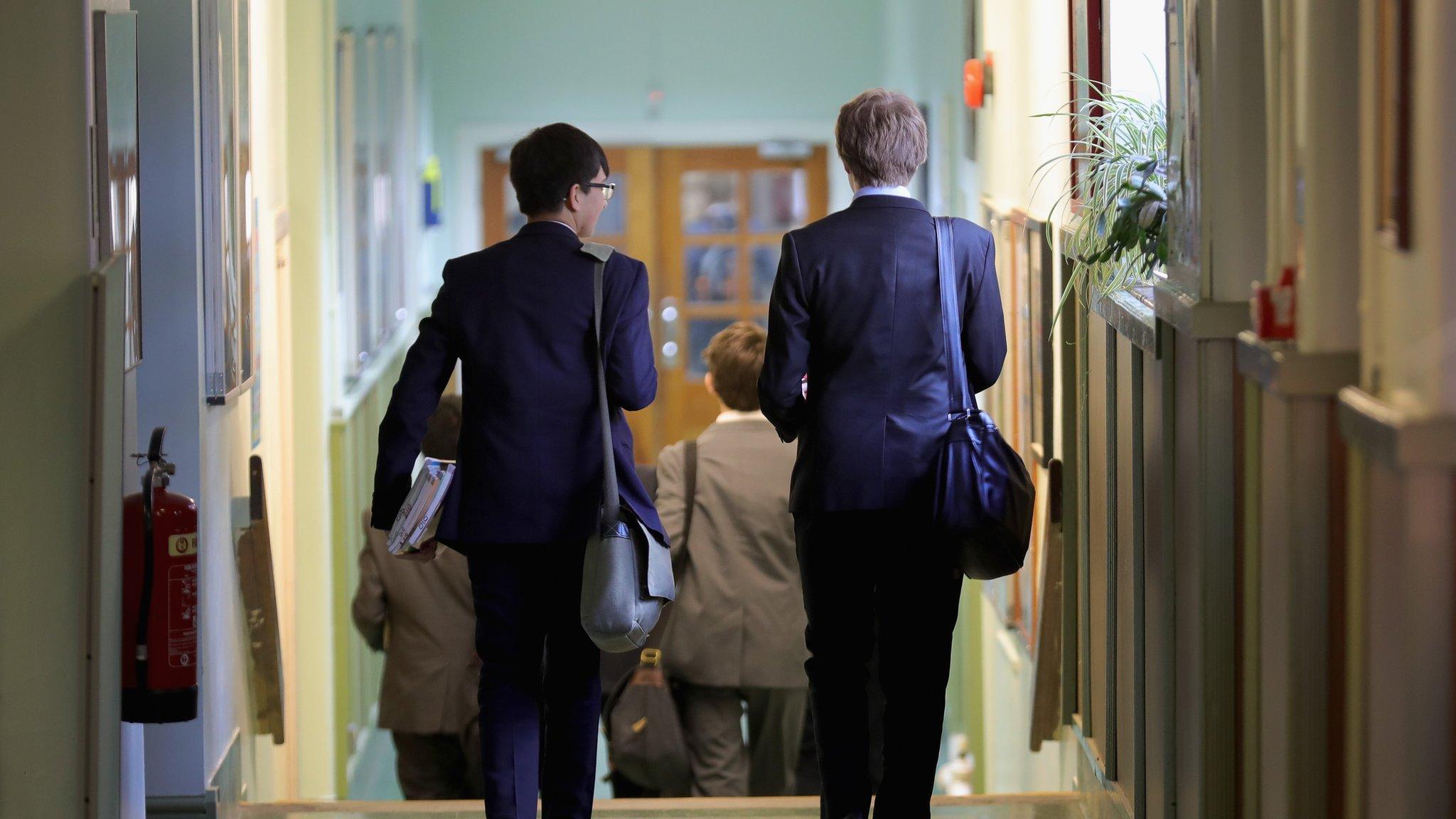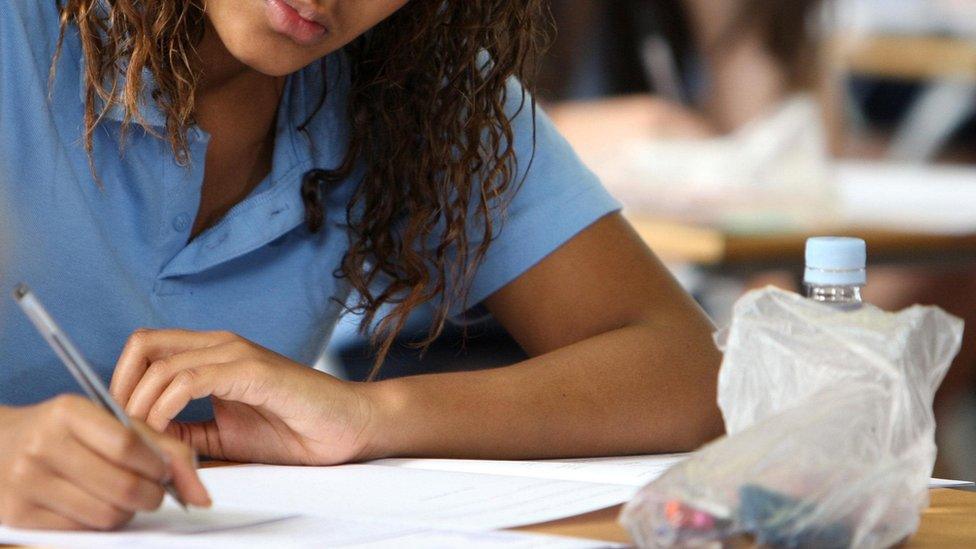Social mobility: Poorer children 'making less progress'
- Published

Poorer pupils are increasingly making less progress at secondary school in England compared with their more affluent peers, a study says.
The Social Mobility Commission said, external poorer pupils were often overtaken by their better-off peers even if they had outperformed them at primary school.
The gap, which was most apparent in poor white children, has widened every year since 2012.
The Department for Education accepted it had "more to do" on the issue.
Researchers examined the GCSE results of pupils on free school meals and those who were not, across two sets of eight subjects.
These results were then measured in relation to how the pupils had performed in their Key Stage 2 Sats tests, in their final year of primary school.
How do poorer children do at selective schools?
The difference in progress was said to be partly the result of poorer children being more likely to be placed in lower sets, having access to less qualified teachers and having lower expectations set for them.
On average, children on free school meals made between a quarter and a third of a GCSE grade less progress than their more affluent peers.
Home life had a substantial impact on progress with poorer children less likely to benefit from effective homework routines, access to books and computers and parents being less likely to help with the work.
The report said poorer children were also more at risk of behavioural issues and being excluded.
Most low-income ethnic minority groups were found to make progress that was in line with the national average for all pupils due to more effective support at home.
Headteachers told researchers that reduced school funding was already putting progress at risk.
Recommendations made by the commission include:
The government should ensure funding cuts do not make the problem worse and make additional contributions available for special needs pupils
More effort should be made to recruit good quality teachers in areas where poorer pupils are particularly affected
A system of universally high expectations should be set out across schools and the use of streaming should be exercised with "great caution"
Schools should regularly analyse progress using data and intervene where necessary
Specific resources should be targeted at pupils moving up from primary school
The analysis did not include special schools, independent schools, pupil referral units and other schools including British overseas schools and schools for service children.
Commission chairman Alan Milburn said the findings were a "shocking feature" of the education system, with progress being made in primary school "all but wiped out" during secondary school
"This is not just an issue for the government. If social mobility is to improve, schools need to do more to bridge the education attainment divide between poorer children and their better-off classmates."
'Break down barriers'
A Department for Education spokesman said it was working to give everyone a "fair chance" at school but acknowledged there was more to be done.
"That's why we have set out plans to create more good school places, in more parts of the country, by ending the ban on new grammar schools, where we know bright children from disadvantaged backgrounds thrive.
"We have announced 12 Opportunity Areas across England, backed with £72m investment, where we are working to break down the barriers to social mobility that too many still face," he added.
The government has also announced it is spending £2.5bn this year to combat inequality in education through the pupil premium.
The research, carried out by think-tank LKMco and researchers from Education Datalab, analysed data from the National Pupil Database.
- Published22 November 2016

- Published9 September 2016

- Published28 December 2016
